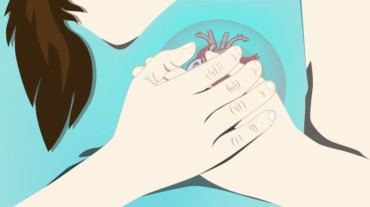
Do you often find yourself worked up over your work? You need to learn how to manage it ASAP because all that stress can actually cause physical damage. And now more and more studies are establishing links between work-related stress and a higher risk of cardiovascular disease.
People who reported work-related stress were more likely to be hospitalised for peripheral artery disease compared to those who did not report work-related stress, according to a study.
Peripheral artery disease, or PAD, is a cardiovascular disease that occurs when cholesterol or other fatty substances in the blood build up in the blood vessels away from the heart, usually the legs, impeding blood flow.
Worldwide, this disease affects more than 200 million people.
What’s the connection between work-related stress and peripheral artery disease?
Previous studies have linked work-related stress to other forms of atherosclerotic disease; however, few have specifically analysed its effects on peripheral artery disease.

The current research, published in the Journal of the American Heart Association, focused on the relationship between work-related stress and hospital treatment for PAD.
“Our findings suggest that work-related stress may be a risk factor for peripheral artery disease in a similar way as it is for heart disease and stroke,” said lead study author Katriina Heikkila from Karolinska Institute in Sweden.
For the results, the researchers evaluated the records of 139,000 men and women participating in 11 separate studies from 1985-2008 in Finland, Sweden, Denmark and the UK.
Participants included in the analysis had no previous history of peripheral artery disease when the respective studies began.
Individual information for each participant included age, sex, BMI, smoker or nonsmoker, alcohol consumption, physical activity level, diabetes status, socioeconomic position, data on hospitalisations and the questionnaire on work-related stress.
Select Topics of your interest and let us customize your feed.
PERSONALISE NOWDuring an average 12.8 years of follow up, 667 people (0.2 to 1.8 percent of participants) were hospitalised for peripheral artery disease.
Researchers found that people with work-related stress were 1.4 times as likely as those without work-related stress to have a record of peripheral artery disease in the hospitalisation register, after adjusting for age, sex and lifestyle variables.
How does stress impact our physical health?
Stress is associated with increased inflammation and higher blood glucose levels.

So, although there is limited evidence linking work-related stress to heart disease, stress could be contributing to complications and exacerbations of the disease, the study said.
Overall, nearly one-fourth of participants with no previous hospitalisation for peripheral artery disease reported work-related stress at the beginning of the 11 studies, the researchers noted.
Also, Read: Living a fast-paced life? Here’s how you can stay fit and manage stress
So, after reading this it’s pretty clear that work-related stress can actually increase your risk of having cardiovascular disease. While stress can’t be completed shunned out of our lives, it can be strategically managed. Take your stress levels seriously ladies, it’s possibility of causing physical harm is real.
Get Latest Updates on Health News